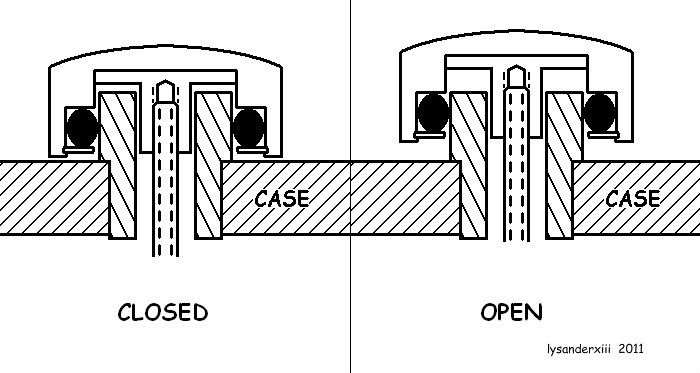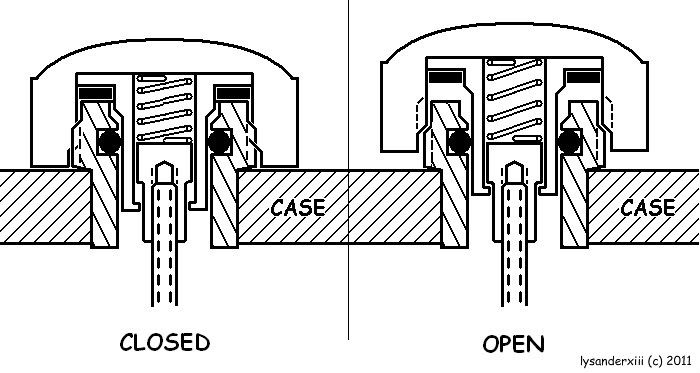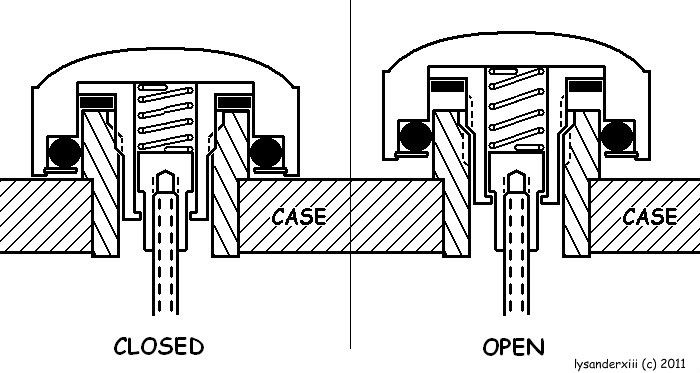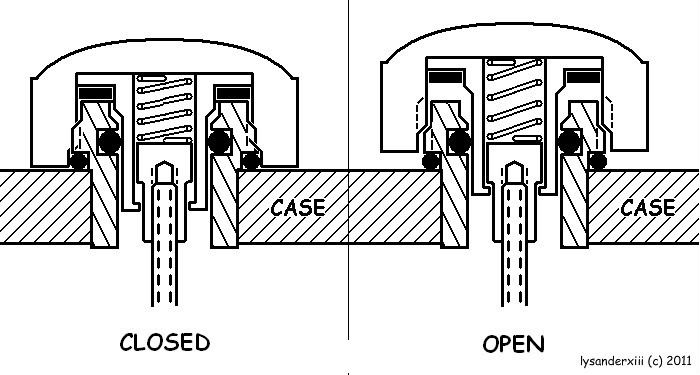Sorry if this has been asked before but:-
Seen loads of post here and elsewhere stressing that the screwing down
of the crown imparts no water resistance of its own, it's all in the gaskets.
So I got to thinking about this whilst opening a bottle of a "popular
carbonated beverage".
The cap on this screws down a maximum. 2 full revolutions ( I counted).
No gaskets, no silicone grease, just the plastic cap.
And it's got liquid contents under what I assume is some
considerable pressure, being carbonated.
But it doesn't leak any gas never mind liquid. Even if you
squeeze it really hard (I tried).
So does the screw down crown impart no protection of its
own at shallow depths? Obviously not talking about
even 50m never mind the full 200 or whatever.
Am I missing something obvious here - any thoughts? :undecided:
One for the physics/engineering experts perhaps......
Feel free to shoot me down in flames if this is a "dumb noob"
question.
Seen loads of post here and elsewhere stressing that the screwing down
of the crown imparts no water resistance of its own, it's all in the gaskets.
So I got to thinking about this whilst opening a bottle of a "popular
carbonated beverage".
The cap on this screws down a maximum. 2 full revolutions ( I counted).
No gaskets, no silicone grease, just the plastic cap.
And it's got liquid contents under what I assume is some
considerable pressure, being carbonated.
But it doesn't leak any gas never mind liquid. Even if you
squeeze it really hard (I tried).
So does the screw down crown impart no protection of its
own at shallow depths? Obviously not talking about
even 50m never mind the full 200 or whatever.
Am I missing something obvious here - any thoughts? :undecided:
One for the physics/engineering experts perhaps......
Feel free to shoot me down in flames if this is a "dumb noob"
question.













